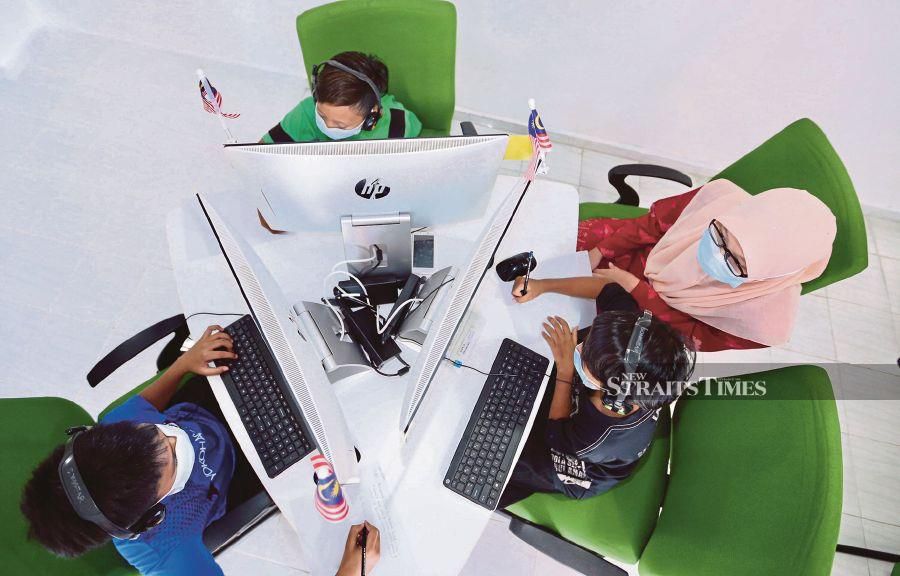The largest budget ever for the country, which comes to a whopping RM332.1 billion, is intended to recharge the economy after the lengthy lockdowns due to the Covid-19 pandemic.
As headlined by a local newspaper, "Rebooting Malaysia", it's also a sign that the government is facing the challenge head on.
A fiscal budget, it is intended to feed directly into the economy and spur growth of at least 5.5 to 6.5 per cent; no mean target, given the challenges.
Already, the gross domestic product growth for the first half of this year is 7.1 per cent.
That the employment picture will improve vastly with the Job Guarantee Scheme is obvious.
There will be 600,000 jobs on the market absorbing the large reservoir of those who lost jobs as a result of closures caused by the lockdowns.
That it took into account women and the disabled showed the extent to which the government intends to lift the standard of living of all Malaysians. When the country is back at work, then the onus is on the rakyat to rebuild and grow the economy.
That is the short-term, to immediately get us back on track. But, that the largest budget allocation (16 per cent) went to the Education Ministry demonstrates the long term concerns of the government.
The pandemic, while damaging, also provides the country with an opportunity to upgrade the level and quality of education.
As the world speeds along to a future redesigned by technology which has outstripped the provisions of an education born to accommodate the Industrial Revolution of the 19th century, the Fourth Industrial Revolution of Artificial Intelligence (AI) and all manner of super advanced technology that have applied quantum physics and the quantum computer takes a new kind of thinking that has yet to be developed in Malaysia.
Whereas our young have only just become accustomed to computers when learning online, children in the developed world are already familiar with all manner of applications.
Malaysia has a long way to go to improving the online infrastructure of the country. Mention was made of the country going 5G, a very necessary evolution.
But, given that the current coverage remains wanting, will the rollout of 5G overcome the problem of Internet access throughout the country? Will schools have computer laboratories?
Currently, even science laboratories are still not part of many schools. In short, even with the current allocation, the many shortcomings of schools generally cannot be put right.
Then, there is the curriculum. India has set up an online-only school offering Indian, American and IGCSE curriculums to choose from.
This suggests, therefore, that with online learning, the scope of teachers and education can be expanded beyond borders.
Education can then be accessed from the best sources.
Curriculums, teaching and learning can be arranged so that cross-border sharing can be implemented in some of the country's best schools to bring about the intellectual evolution necessary for our country to catch up.
In short, financial allocations, while integral, do not guarantee success unless the aspired-to outcome is definitively identified.
What are our national aspirations which will determine the outcomes needed, and from there, the design of the appropriate curriculum?
Is writing a necessary skill, for instance? Or can it be done away with as computers become a necessary learning tool from day one? The new normal in learning and teaching will be revolutionary. Reading is, of course, pivotal.
Sharpening the intelligence of children may probably be the primary focus of education in the future. What is the curriculum of the future? Now that robots are no longer science fiction, for instance, and AI is a part of life, schools cannot continue teaching knowledge of the past.
These are important factors that must be quickly configured. The large allocation must be used to put in place a curriculum of the future. Given what the children have gone through during the lockdowns, the change will not shock their system.
Education will need new norms to remain relevant. Our children must be educated to prepare them for a future of robots, AI and a digitised world.
Obviously this must have informed the decision for the allocation of 16 per cent of the 2022 Budget to the Education Ministry.
It is now for the ministry to design the spending to usher in the future.
The author is a former NST Leader writer



